Guided by the "dual carbon" goals, the PV industry is accelerating into a new phase of high-quality development characterized by "safety + greenness". On June 10th, the "Safety and Green Technology Seminar", hosted by Zhongjian Materials, was successfully held in Shanghai. At the event, the highly anticipated "double-beam alloy steel frame" was unveiled, becoming an innovative solution to address extreme weather conditions and enhance module safety. Representatives from state-owned enterprises, EPC companies, leading module manufacturers, as well as experts and scholars, gathered to discuss the future development path of the PV industry driven by "hard technology".
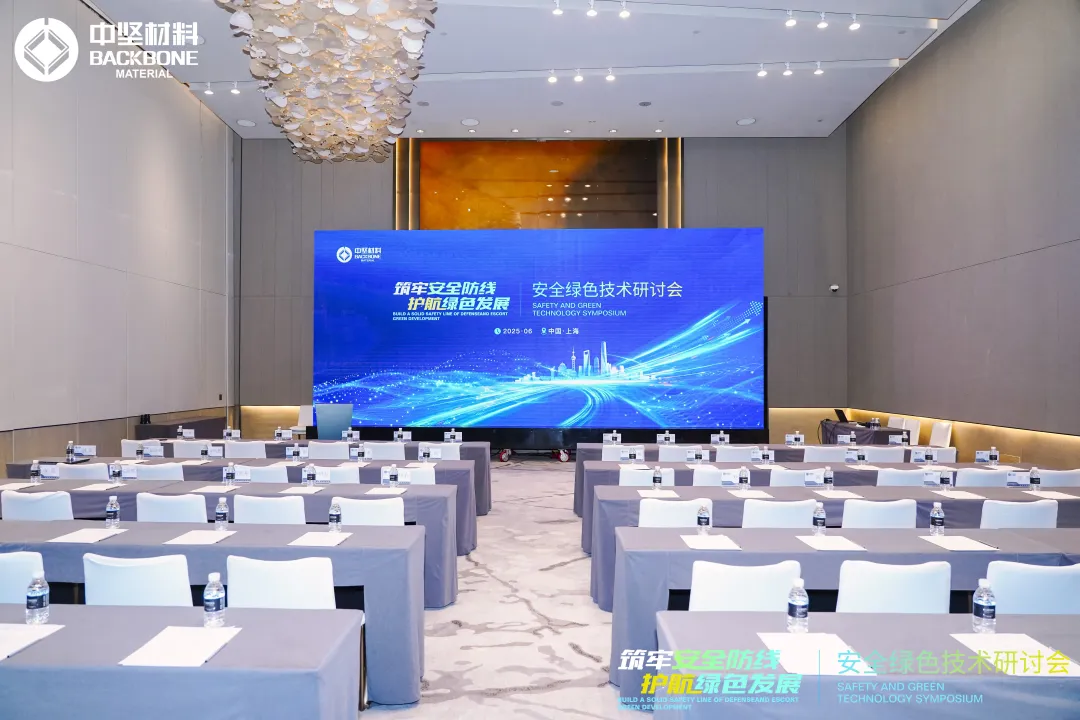
Safety First: The Double-Beam Alloy Steel Frame Makes a Grand Appearance
With the increasing frequency of extreme weather events, the severity of power plant safety incidents is escalating. Amidst the ongoing trends of larger and thinner modules, there is an urgent need for breakthroughs in the mechanical strength of PV systems, and the industry is in dire need of higher safety-level load standards.
Deng Ruhua, Technical Manager of Zhongjian Materials, systematically introduced the company's latest R&D achievement—the double-beam alloy steel frame—in response to the climate challenges and structural bottlenecks faced by the industry. Based on three generations of technological iterations, this product utilizes high-strength zinc-aluminum-magnesium alloy steel, significantly enhancing corrosion resistance and structural strength. Its "Dragon Head" structure on the A-side effectively prevents dust accumulation, the load-bearing beam on the B-side offers strong load-bearing and cushioning capabilities, and the reinforcing beam on the C-side optimizes the bifaciality and enhances tear resistance.
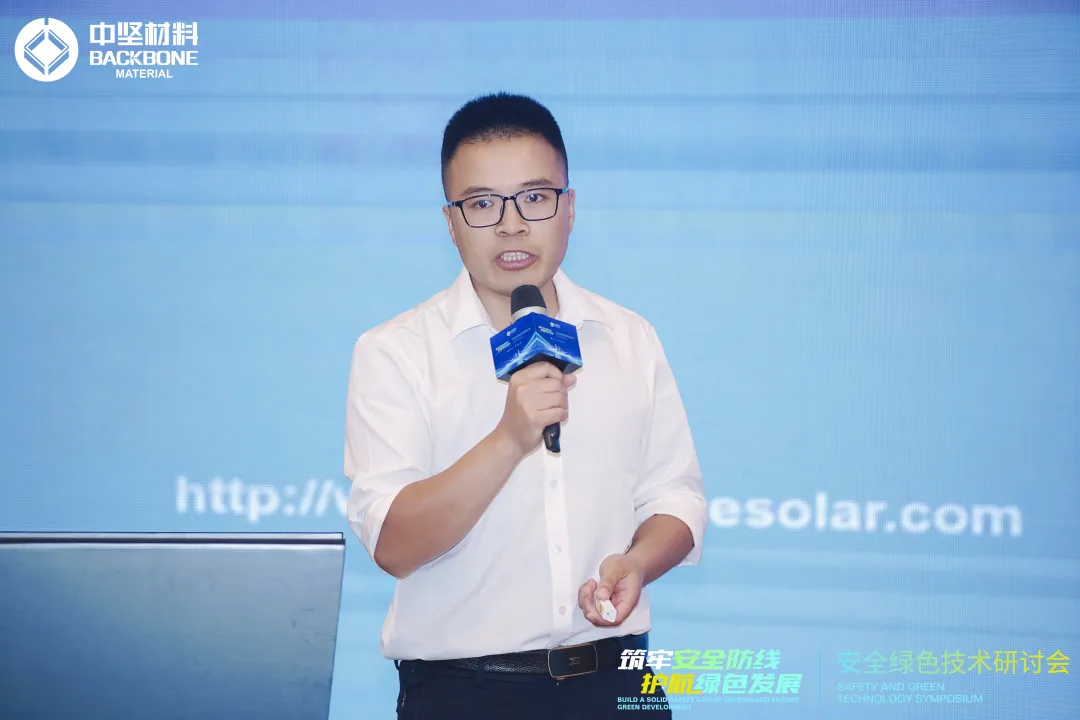
The frame's appearance is highly consistent with traditional aluminum frames, compatible with existing module production and installation processes, offering excellent adaptability and substitutability. With a front-side ultimate load capacity of up to 10,000 Pa, it can withstand typhoons of up to Category 17. Its carbon emissions are reduced by 61.8% compared to aluminum frames, achieving a dual improvement in greenness and safety. Currently, the product has passed multiple extreme environment tests, including IEC63556, and is particularly suitable for harsh application scenarios such as "desert, gobi, and wasteland", high winds and snow, and severe hailstorms.
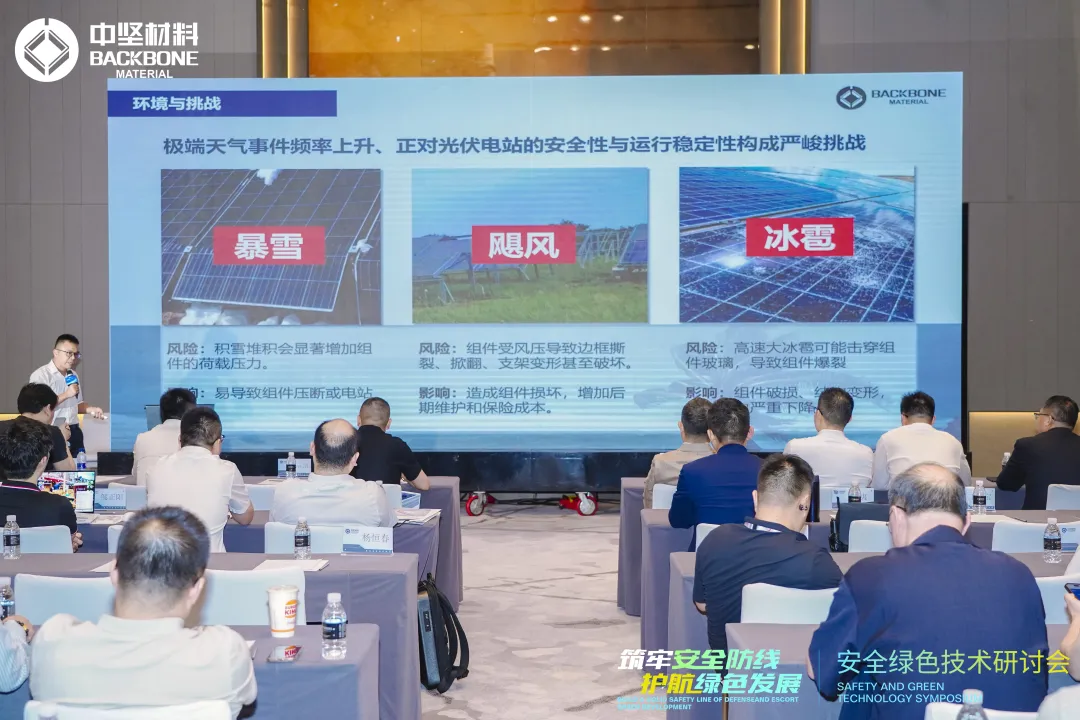
Wind-Resistant Modules Demonstrated in Multiple Locations, Zero-Loss Performance Attracts Attention
Qiu Guohui, Vice President of Jolywood and General Manager of the Application BU, introduced that the "Wind-Resistant Module" featuring a "single-glass + transparent backsheet + double-beam alloy steel frame" design has been successfully applied in 19 provinces across the country, with a total installed capacity of 168 MWp. After enduring multiple rounds of extreme weather conditions, including strong typhoons, hailstorms, and heavy snowfall, only one module suffered external damage, while the rest remained intact, fully demonstrating the high safety and reliability of the "Wind-Resistant Module" and attracting significant attention from power plant investors. Mr. Qiu also pointed out that the dust-prevention design of the double-beam alloy steel frame can enhance the power generation efficiency of the Wind-Resistant Module, further increasing power generation revenue for power plant investors.
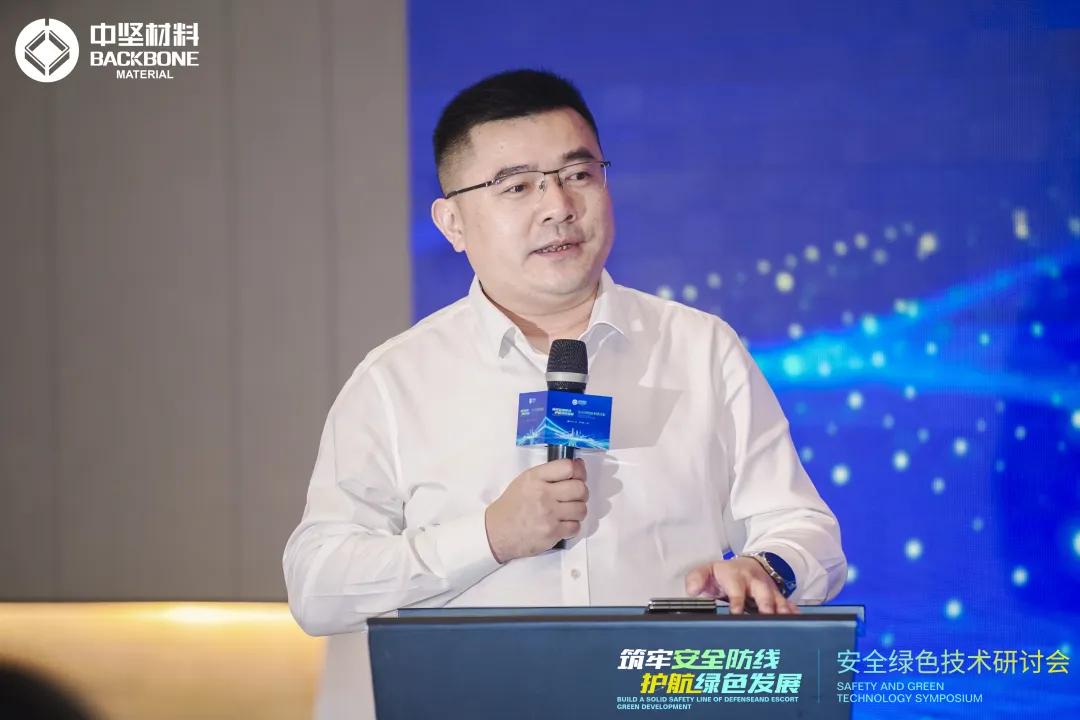
Dr. An Chao, R&D Technical Director of Jolywood Optoelectronics, noted that the steel frame, with its superior strength performance (front-side load capacity of 8,100 Pa, back-side load capacity of 3,200 Pa) and good compatibility, has proven its reliability in multiple Jolywood projects, with cumulative shipments and orders approaching 400 MW. Aluminum frames are becoming a critical pathway to meeting the requirements for high-quality development.
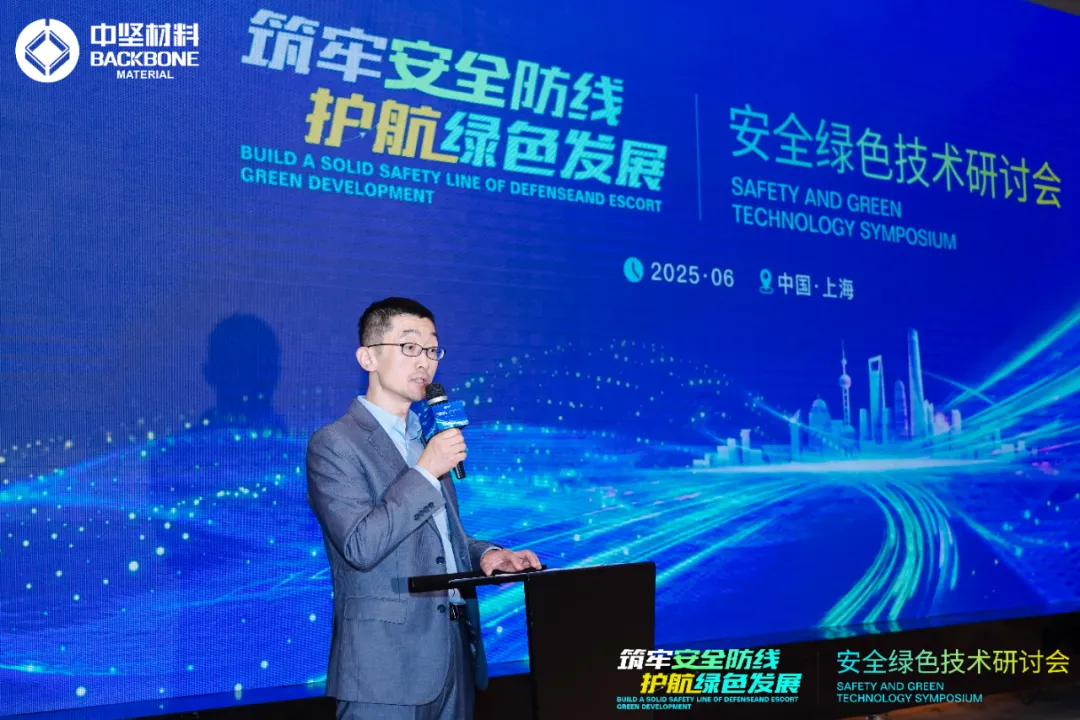
Technology and insurance drive the solidification of green foundations.
Dr. Liu Jie from Baosteel Central Research Institute introduced the green application of BaoXM® zinc-aluminum-magnesium coated steel sheets in PV frames, which not only enhances corrosion resistance but also helps address carbon tariffs. This material exhibits excellent formability and self-healing capabilities at cut edges, making it widely applicable in coastal and extreme climate zones. Baosteel offers a variety of high-coating products with specified corrosion resistance lifespans, ensuring long-term and stable supply.
Lu Peijian, Deputy General Manager of PICC Suzhou Branch, pointed out that natural disasters currently account for over 60% of the risks in PV power plants. He highly praised the risk-resistance capabilities of steel-framed modules and expressed his intention to promote the transformation of insurance from "post-event compensation" to "risk reduction + capital synergy," supporting the steady development of the industry. Relying on its experience serving top-tier enterprises such as LONGi, PICC Suzhou provides comprehensive, one-stop risk protection for the industry.
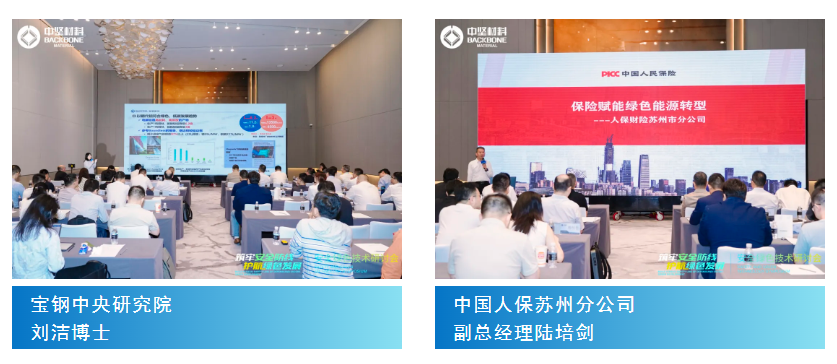
Strategic Signing to Elevate Collaboration
At the event, Zhongjian Materials signed strategic cooperation agreements with PowerChina Guiyang Engineering Corporation and PowerChina Sichuan Engineering Corporation, as well as a 500MW steel frame project agreement in Shizuishan, Ningxia, with Saifute New Energy, demonstrating customers' high recognition of Zhongjian's products and technological approach.
Zhang Haichao, Member of the Party Committee and Deputy General Manager of PowerChina Guiyang Engineering Corporation, stated that complex environments such as high altitudes and high wind pressures impose higher safety requirements on structural materials. The technological breakthrough in Zhongjian's double-beam steel frames provides more efficient and reliable structural solutions for the corporation. This strategic cooperation will usher in a new chapter of complementary advantages and synergistic development between the two parties.
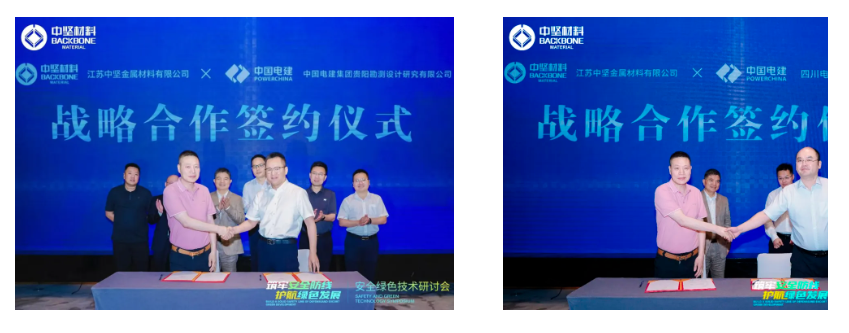
Returning to Essentials, Ushering in the Era of "Tough Competition"
At the end of the seminar, Lin Jianwei, the founder of Jolywood Group, delivered a speech. He noted that although the PV industry is in a phase of rapid development, it is experiencing anxiety due to cut-throat competition, with intensified cost-reduction and capacity competition. However, the core of future industry competition will no longer be mere scale expansion but rather a return to product quality, technological innovation, and value creation, ushering in the era of "tough competition."
Taking Zhongjian's steel frames as an example, he recounted the seven-year innovation journey spanning three generations: from project initiation in 2018 to achieving hundred-megawatt-scale applications in 2024, and plans to advance to gigawatt-scale promotion in 2025. Lin Jianwei emphasized that the core innovation of Zhongjian's steel frames lies in the "double-beam" structure. By pioneering the "double-beam" structural design and process optimization, they have successfully addressed pain points such as the easy deformation of aluminum frames, combining high safety with cost advantages. It is expected that within five years, this technology will become a mainstream solution, significantly enhancing module quality and reliability.
He called on the industry to build consensus and, supported by professionalism, technology, and ecological collaboration, jointly construct a safer, greener, and higher-quality PV ecosystem.
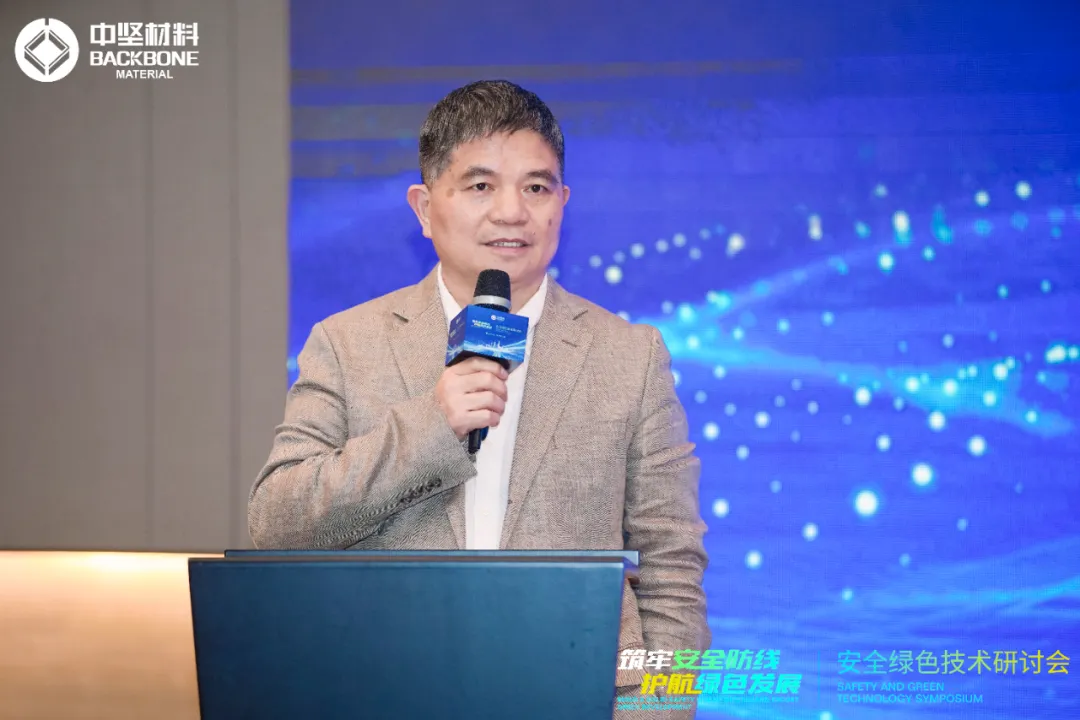
The PV industry has broad prospects, with the power and scale of modules continuing to increase. Developing more reliable, safe, and green system solutions has become a common goal for the industry. Zhongjian Materials will continue to lead the new era of steel frames with cutting-edge technology, contributing to the global energy transition. The future is here; let's join hands as peers to create a bright future together!
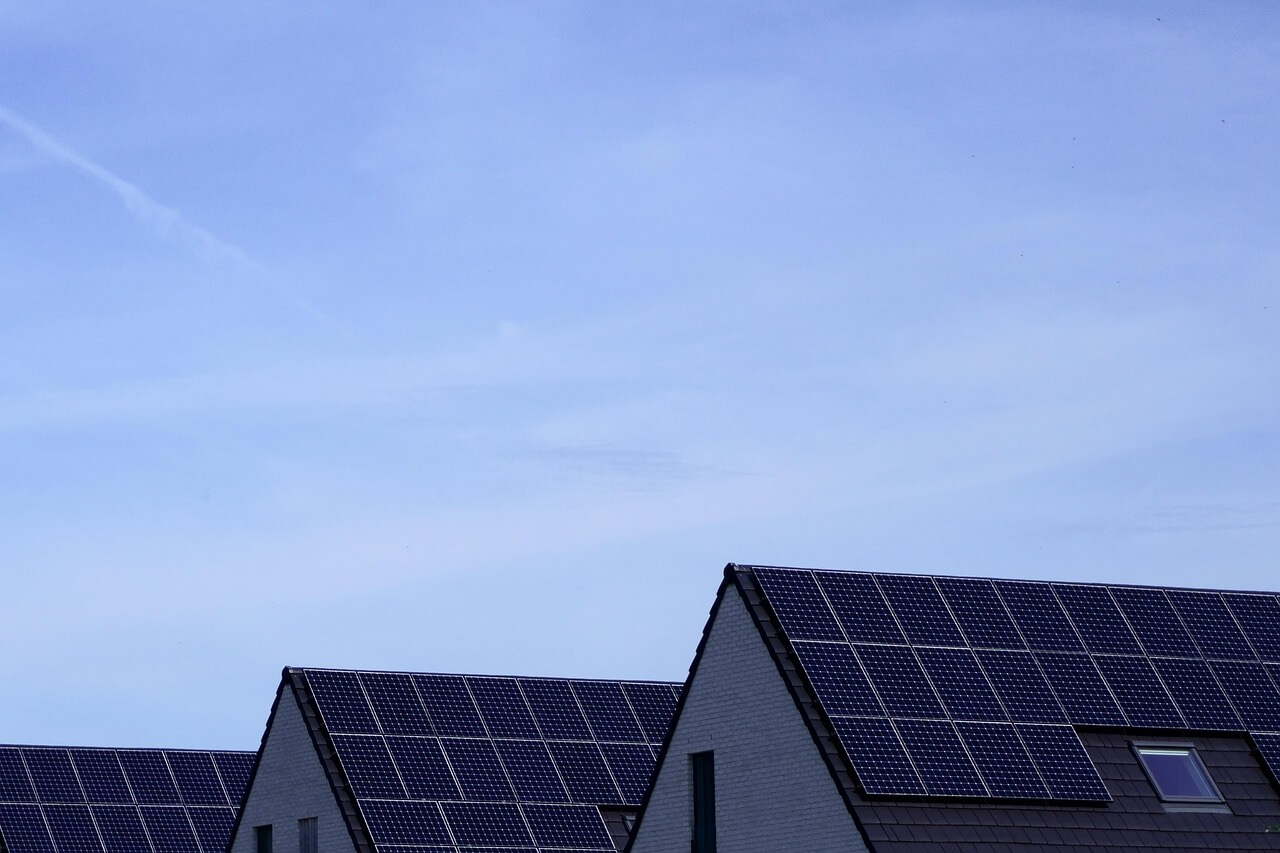
![[SMM PV News] Armenia Hits 1.1 GW Solar Capacity,](https://imgqn.smm.cn/usercenter/qQwIB20251217171741.jpg)
![Spot Market and Domestic Inventory Brief Review (February 5, 2026) [SMM Silver Market Weekly Review]](https://imgqn.smm.cn/usercenter/tSwaX20251217171735.jpg)
